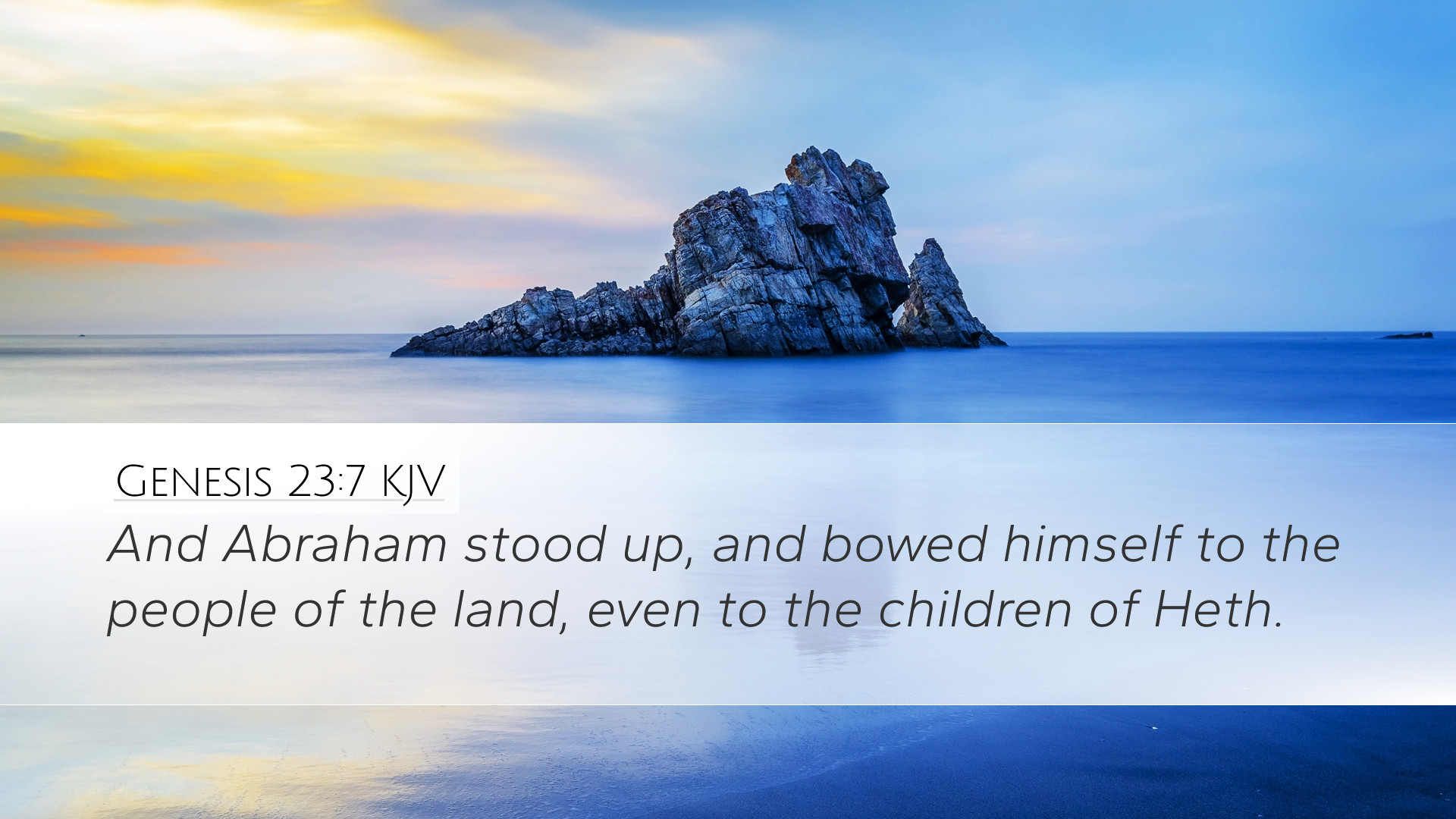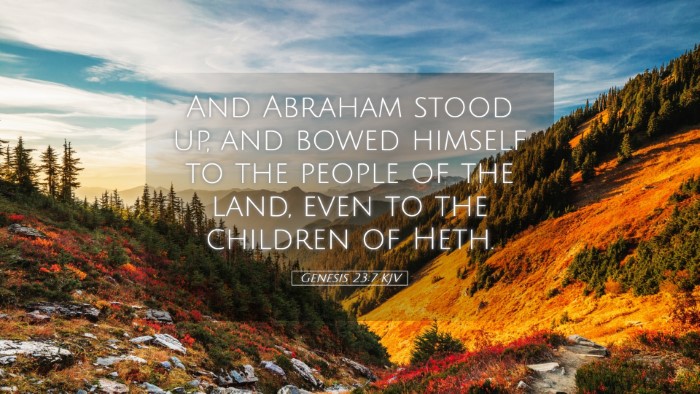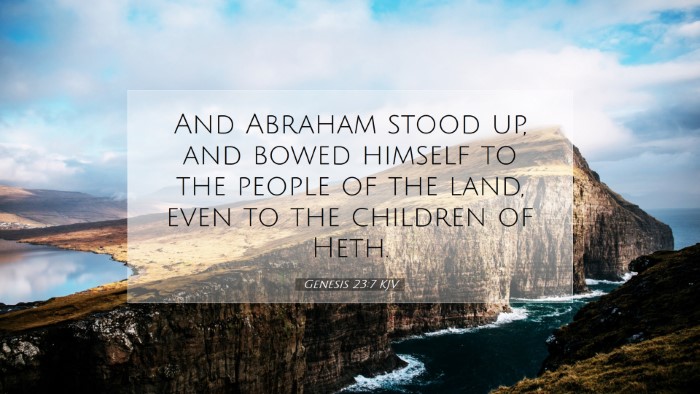Commentary on Genesis 23:7
Text of Genesis 23:7 (KJV): "And Abraham stood up, and bowed himself to the people of the land, even to the children of Heth."
Introduction
This verse marks a significant moment in the biblical narrative as Abraham navigates the complexities of mourning Sarah and securing a burial place for her. It encapsulates themes of respect, cultural customs, and the beginning of the realization of God's promises to Abraham regarding land and descendants.
Verse Analysis
As we explore this verse, it becomes important to note the cultural context surrounding Abraham's actions. His bowing to the people of Heth reflects a deep respect for local customs and the socio-political dynamics at play. Matthew Henry, in his Complete Commentary on the Bible, emphasizes the importance of this act of honoring the Hittites, showcasing Abraham's integrity and humility in seeking a burial site.
Respect for Local Customs
Abraham’s behavior is representative of the ancient Near Eastern traditions where respect and hospitality governed social interactions. He acknowledges the children of Heth as equals, which indicates his diplomatic approach. Albert Barnes, in his Notes on the Bible, asserts that Abraham's act of bowing demonstrates both reverence and strategic engagement with the Hittites, recognizing their authority in the land where he lives as a stranger.
Contextual Significance
Understanding the sociocultural backdrop of Abraham’s transaction provides valuable insights. Abraham is not merely seeking a burial place; he is, in essence, laying the groundwork for future generations. As Adam Clarke notes in his Commentary on the Bible, this episode serves as a critical juncture that illustrates Abraham’s faith in God's promise to give him land and descendants. By securing this burial site, he is making a statement about his identity and legacy in the Promised Land.
Thematic Elements
- Faith and Assurance: The act of purchasing land reflects Abraham’s faith in God’s promises. Unlike a transient sojourner, Abraham acts with certainty about his future and that of his descendants.
- Grief and Mourning: The context of mourning for Sarah is woven into this narrative. It highlights profound emotional and spiritual dimensions that influence his decision-making as a patriarch.
- Identity and Belonging: This transaction marks the first piece of land Abraham acquires, symbolizing a foundational step in establishing identity within the Covenant community.
Theological Implications
From a theological perspective, Genesis 23:7 serves as a bridge to understanding God’s covenantal promises. The location chosen for Sarah's burial holds prophetic significance, indicating that future generations will inherit this land. Matthew Henry comments on the infusion of divine providence in every transaction, as it is part of God's overarching plan for Abraham and his descendants.
Covenant and Legacy
In the broader covenantal scheme, obtaining this burial site becomes emblematic. Barnes observes that actions in the present ring with eternal implication; thus, Abraham's decision is a meaningful assertion of faith amidst sorrow. It assures future generations that their heritage is anchored in God's promise.
Application for Today
For pastors, students of theology, and biblical scholars, Genesis 23:7 challenges us to reflect on how we navigate cultural customs while remaining faithful to God’s calling. It encourages us to engage with communities respectfully, asserting our identity as believers while pursuing God's promises in our lives and ministries.
Conclusion
Genesis 23:7 encapsulates Abraham's humility, faith, and respect for the people surrounding him, providing critical insights into the broader narrative of God’s covenant with His people. Understanding this moment enriches our appreciation of the biblical text, allowing us to glean lessons applicable to contemporary faith life. In honoring these themes, we reaffirm our commitment to navigating our spiritual journeys with integrity, faith, and respect for the communities we inhabit.


